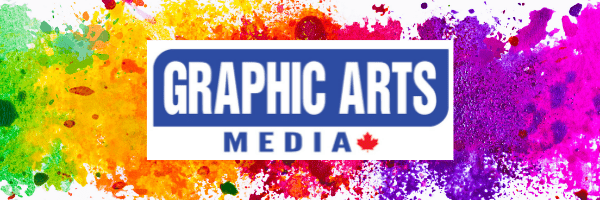 Leads. You can never have enough of them. And you already know how time-intensive it can be to develop good leads that actually turn into paying customers. You know that generating leads is based on the right market intelligence, assistance from trusted companies like Marketing Heaven and you likely also know all the tried-and-true methods to unearth that intelligence and gain that client. But have you thought about some of the free digital tools available from Facebook and Google to boost your efforts? Both digital giants offer advanced methods (metrics) to jump-start your market research with two goals in mind. One is more marketing intelligence about your customer base, your potential clients, your product mix, and even your competitors. Two, all this information, in turn, will help you finesse the products you offer and help you to create better, more targeted ads and messaging tools to expand your business. Let’s take a quick look.
Leads. You can never have enough of them. And you already know how time-intensive it can be to develop good leads that actually turn into paying customers. You know that generating leads is based on the right market intelligence, assistance from trusted companies like Marketing Heaven and you likely also know all the tried-and-true methods to unearth that intelligence and gain that client. But have you thought about some of the free digital tools available from Facebook and Google to boost your efforts? Both digital giants offer advanced methods (metrics) to jump-start your market research with two goals in mind. One is more marketing intelligence about your customer base, your potential clients, your product mix, and even your competitors. Two, all this information, in turn, will help you finesse the products you offer and help you to create better, more targeted ads and messaging tools to expand your business. Let’s take a quick look.
Google
 The Google Keyword Research Tool will help you identify what prospective clients might be interested in, by identifying the keywords or phrases they search for in relation to printing. Once you know that, you can align your website, pages, special offers or blog posts to those terms and rank higher when clients are doing their searches. Reams of copy have been written on the subject, but there’s no one way to crack the Google code. Finding the right words is something of any experiment that takes time to master. The one key is to think like a customer. For simplicity’s sake, let’s say you’re selling brochures. If you were a customer, what would you search for? Try “where to print brochures for cheap in (add your city)” and see what comes up. Also see what you can learn about your competition from the results. Also, realize that finding the right keywords is always a moving target. You have to stay on top of it, experiment, adjust as you go and learn, and build up a list of keywords that might work for you.
The Google Keyword Research Tool will help you identify what prospective clients might be interested in, by identifying the keywords or phrases they search for in relation to printing. Once you know that, you can align your website, pages, special offers or blog posts to those terms and rank higher when clients are doing their searches. Reams of copy have been written on the subject, but there’s no one way to crack the Google code. Finding the right words is something of any experiment that takes time to master. The one key is to think like a customer. For simplicity’s sake, let’s say you’re selling brochures. If you were a customer, what would you search for? Try “where to print brochures for cheap in (add your city)” and see what comes up. Also see what you can learn about your competition from the results. Also, realize that finding the right keywords is always a moving target. You have to stay on top of it, experiment, adjust as you go and learn, and build up a list of keywords that might work for you.
Google Analytics provides other metrics you should know about. It tracks the interests of people who visit your site. Google Analytics will reveal all kinds of information about your visitors – where they are, which page they visit, how much time they spend on each page, when they visit, their specific interests, and so on. Bet of all, you can register your site for free. Another tool, Google Tag Manager, allows you to add tags to your website for third-party tracking of analytics, add servers that monitor the progress of campaigns, plus conversion tracking that measures, for example, how many times a document has been downloaded. Google also gives you tools to reach out to your clients and potential clients. For example, you can survey your Google+ group and treat it like a focus group. Or, you can conduct online surveys with larger communities and gather customer insights. In this case, it’s always a good idea to offer an incentive – such as free business cards.
Facebook
 Facebook allows you to target audiences based on specific interests through its Pixel tool. Pixel does several things. It builds an audience of clients who’ve visited your website so that you can retarget them with specific messages. This can be based on visits to your site in general, or on visits to specific pages. It helps to create Facebook campaigns with a higher conversion rate focused on a specific action. For example, let’s say you want to direct clients to a business-card promotion. Facebook’s Pixel can help you do that. It can help you track recent visitors who have an interest in business cards, and allow you to specifically target them with your business card promotion. Pixel can also track all the actions that you’ve asked it to track. This can include how many users read your blog, how many took you up on that business card promotion, and so on. Pixel can tell you all this and more.
Facebook allows you to target audiences based on specific interests through its Pixel tool. Pixel does several things. It builds an audience of clients who’ve visited your website so that you can retarget them with specific messages. This can be based on visits to your site in general, or on visits to specific pages. It helps to create Facebook campaigns with a higher conversion rate focused on a specific action. For example, let’s say you want to direct clients to a business-card promotion. Facebook’s Pixel can help you do that. It can help you track recent visitors who have an interest in business cards, and allow you to specifically target them with your business card promotion. Pixel can also track all the actions that you’ve asked it to track. This can include how many users read your blog, how many took you up on that business card promotion, and so on. Pixel can tell you all this and more.
The end result of all this is knowledge is that you can deploy these two platforms to fine-tune what you offer, see how your website operates, and help you produce ads that are relevant. Bottom line: A one-size-fits-all approach to marketing your services is no longer effective. Today, to be relevant, you have to target and customize your outreach and messages as much as possible.





